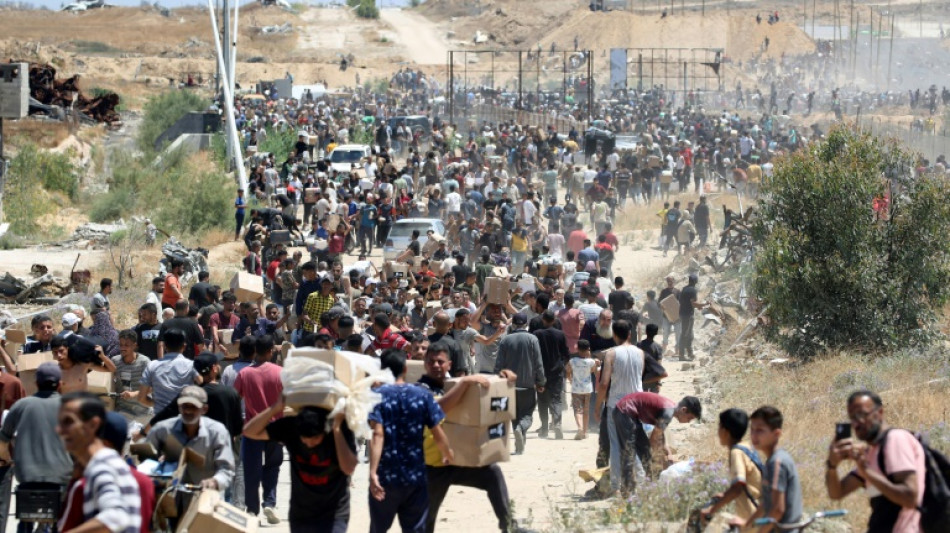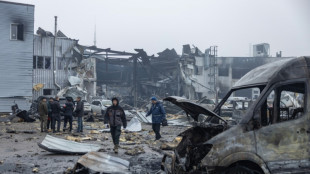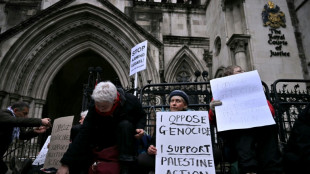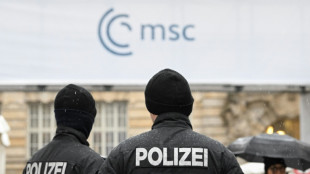

Trump vowed to remake aid. Is Gaza the future?
President Donald Trump has slashed US aid and vowed a major rethink on helping the world. A controversial effort to bring food to Gaza may offer clues on what's to come.
Administered by contracted US security with Israeli troops at the perimeter, the Gaza Humanitarian Foundation (GHF) is distributing food through several hubs in the war-ravaged Gaza Strip.
An officially private effort with opaque funding, the GHF began operations on May 26 after Israel completely cut off supplies into Gaza for over two months, sparking warnings of mass famine.
The organization said it had distributed 2.1 million meals as of Friday.
The initiative excludes the United Nations, which has long coordinated aid distribution in the war-ravaged territory and has infrastructure and systems in place to deliver assistance on a large scale.
The UN and other major aid groups have refused to cooperate with GHF, saying it violates basic humanitarian principles, and appears crafted to cater to Israeli military objectives.
"What we have seen is chaotic, it's tragic and it's resulted in hundreds of thousands of people scrambling in an incredibly undignified and unsafe way to access a tiny trickle of aid," said Ciaran Donnelly, senior vice president of international programs at the International Rescue Committee (IRC).
Jan Egeland, head of the Norwegian Refugee Council, said his aid group stopped work in Gaza in 2015 when Hamas militants invaded its office and that it refused to cooperate in Syria when former strongman Bashar al-Assad was pressuring opposition-held areas by withholding food.
"Why on earth would we be willing to let the Israeli military decide how, where and to whom we give our aid as part of their military strategy to herd people around Gaza?" said Egeland.
"It's a violation of everything we stand for. It is the biggest and reddest line there is that we cannot cross."
- Sidelining UN -
The UN said that 47 people were injured Tuesday when hungry and desperate crowds rushed a GHF site -- most of them by Israeli gunfire -- while a Palestinian medical source said at least one person had died.
The Israeli military denied its soldiers fired on civilians and the GHF denied any injuries or deaths.
Israel has relentlessly attacked Gaza since Hamas's unprecedented attack on Israel on October 7, 2023.
Israel has vowed to sideline the UN agency for Palestinian refugees UNRWA, accusing it of bias and of harboring Hamas militants.
UNRWA said that nine out of thousands of staff may have been involved in the October 7 attack and dismissed them, but accuses Israel of trying to throw a distraction.
John Hannah, a former senior US policymaker who led a study last year that gave birth to the concepts behind the GHF, said the UN seemed to be "completely lacking in self-reflection" on the need for a new approach to aid after Hamas built a "terror kingdom."
"I fear that people could be on the brink of letting the perfect be the enemy of the good instead of figuring out how do we take part in this effort, improve it, make it better, scale it up," said Hannah, who is not involved in implementing the GHF.
Hannah, a senior fellow at the Jewish Institute for National Security of America, defended the use of private contractors, saying that many had extensive Middle East experience from the US-led "war on terror."
"We would have been happy if there were volunteers from (other) capable and trusted national forces... but the fact is, nobody's volunteering," he said.
He said he would rather that aid workers coordinate with Israel than Hamas.
"Inevitably, any humanitarian effort in a war zone has to make some compromises with a ruling authority that carries the guns," he said.
- Legitimacy issue -
Hannah's study had discouraged a major Israeli role in humanitarian work in Gaza, urging instead involvement by Arab states to bring greater legitimacy.
Arab states have balked at supporting US efforts as Israel pounds Gaza and after Trump mused about forcibly displacing the whole Gaza population and constructing luxury hotels.
Israel and Hamas are negotiating a new Gaza ceasefire that could see a resumption of UN-backed efforts.
Aid groups say they have vast amounts of aid ready for Gaza that remain blocked.
Donnelly said the IRC had 27 tons of supplies waiting to enter Gaza, faulting the GHF for distributing items like pasta and tinned fish that require cooking supplies -- not therapeutic food and treatment for malnourished children.
He called for distributing relief in communities where people need it, instead of through militarized hubs.
"If anyone really cares about distributing aid in a transparent, accountable, effective way, the way to do that is to use the expertise and infrastructure of aid organizations that have been doing this for decades," Donnelly said.
A.Thys--JdB



